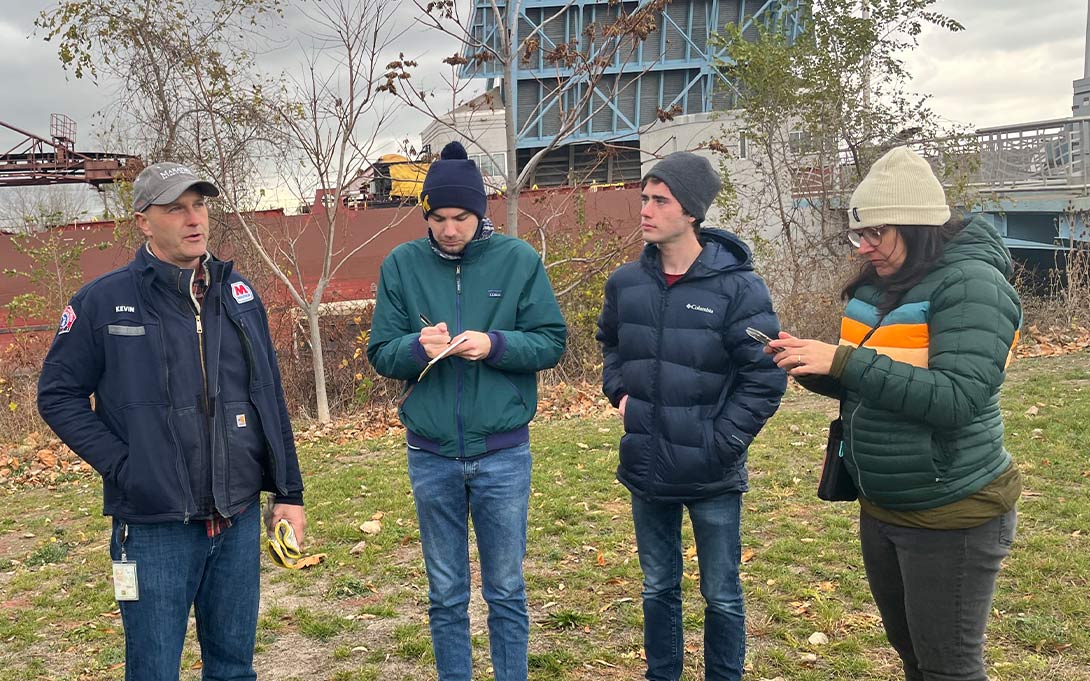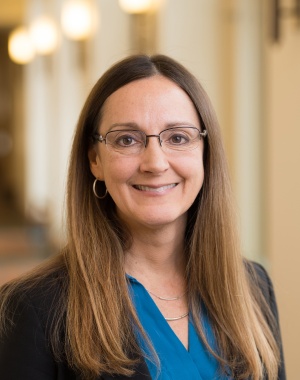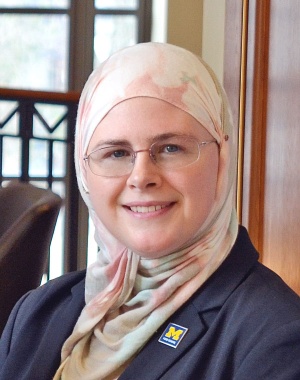
With the guidance and support of the Ford School’s research centers, graduate and undergraduate students are creating a real-life impact in a range of areas by working with external partners. The Ford School is deeply integrated with a wide range of policy communities that provide opportunities for students to engage with real-world policy issues in the classroom and through research, activities, and workshops.
The most recent semester’s student work is highlighted in the Fall 2022 Engaged Learning Student Projects Catalog, curated by Program in Practical Policy Engagement (P3E) staff Mariam Negaran, DeAndré J. Calvert, and P3E Director Elisabeth Gerber, Jack L. Walker, Jr. Professor of Public Policy.
Through the Detroit Neighborhood Entrepreneurs Project, the Center on Finance, Law & Policy provided students the opportunity to spend the summer working with small business owners in Detroit to get back on their feet after the COVID-19 pandemic. In addition, the Community Tech Worker program helped improve digital access and the digital capability of Detroit's minority-owned businesses by connecting them to U-M students for free technology training and support.
The Center for Local, State, and Urban Policy (CLOSUP) allowed two master’s students to gain real-world experience with the non-profit XBRL.US on Modernizing Michigan Local Government Fiscal Transparency.
The Center for Racial Justice (CRJ) welcomed seven graduate and undergraduate research assistants, who will explore, analyze, and understand how public policies have undermined or advanced the goal of racial equity,
Through Student Research Fellowships and Practical Community Learning Projects (PCLP), the Program in Practical Policy Engagement supported over 20 students in carrying out research for external stakeholders, such as the City of Flint, Detroit Public School District, Dearborn Department of Health, and more. These projects provide opportunities for dialogue, research, and service through conducting program evaluations, policy research, grant writing, and other activities.
The Student Research Corps at the Science, Technology, and Public Policy (STPP) program allows students to respond to the needs of the community and provide answers to their questions about technical and policy advocacy. Additionally, student researchers in the Community Partnerships Initiative work with communities by doing research, and writing policy briefs and reports, helping the partners bring their voices and expertise to public policy discussions related to science and technology.
The Ford School regularly offers the Strategic Public Policy Consulting course, which engages students in a supervised consulting project with a real-world client. Fall 2022 students worked with a range of clients, from the Criminal Investigative Training Assistance Program to the U.S. Government Accountability Office.
The Weiser Diplomacy Center’s Diplomacy Lab supported 22 students working on four projects for the U.S. State Department—assessing inclusion, equity, and accessibility in the criminal legal systems of the Western Hemisphere; mapping Iceland's arctic economy, determining whether local circumstances shape best rehabilitation and reintegration practices, and examining the typologies and impacts of online gender-based violence.
The Ford School provides its students with real-life experiences that prepare them for their careers. With the help of the research centers, students across the university are given the opportunity to work with external stakeholders and clients to make a real impact in communities across the state and country.
Read more in the Fall 2022 Engaged Learning Student Projects Catalog


